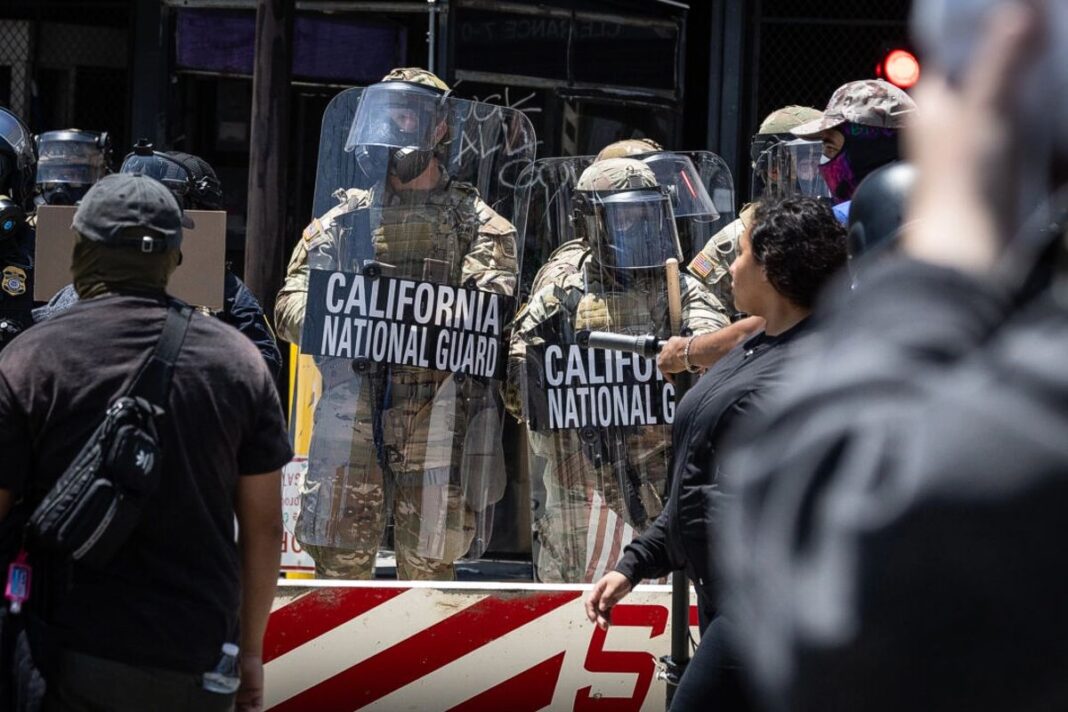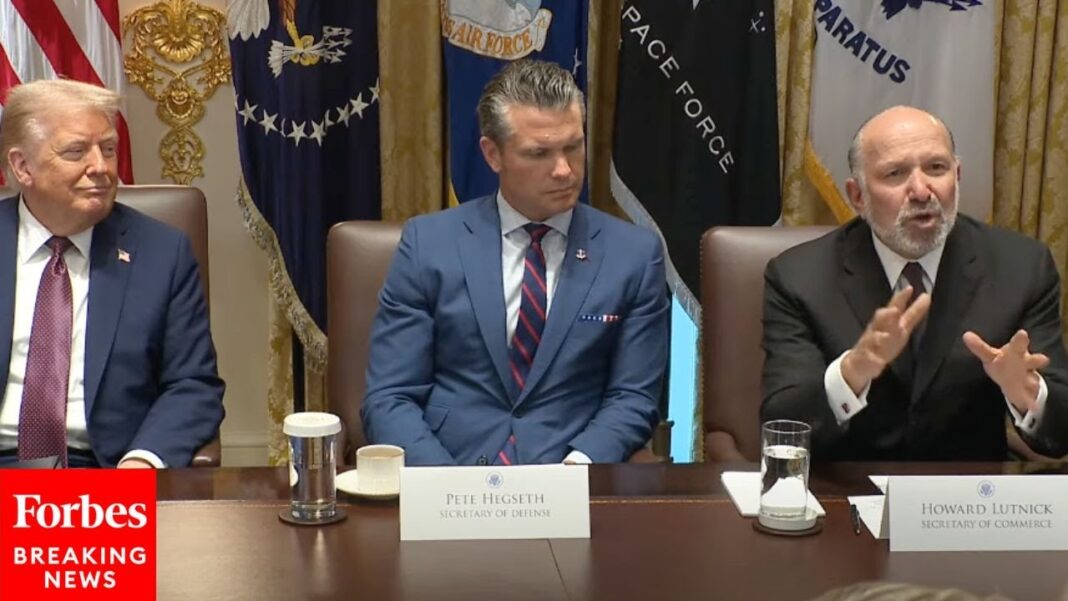The administration is prohibited from using troops for law enforcement in California.
A federal judge in California has ruled that the Trump administration unlawfully used Marines and National Guard troops in Los Angeles.
In a Sept. 2 order, U.S. District Judge Charles Breyer said the federal government couldn’t use the California National Guard or any military troops deployed in the state to engage in arrests, apprehensions, crowd control, and other activities.
Breyer said that the federal government violated a law known as the Posse Comitatus Act, which generally prevents the military from engaging in civilian law enforcement.
The ruling followed a trial last month overseen by Breyer. He had previously blocked the federal government’s use of National Guard troops, but an appeals court halted that decision.
The trial occurred as Trump deployed troops to Washington and floated intervening in Chicago as well. Breyer’s order, which only applies to activity in California, expressed concern that Trump might intervene in Oakland and San Francisco.
“President Trump and [Defense] Secretary [Pete] Hegseth have stated their intention to call National Guard troops into federal service in other cities across the country–including Oakland and San Francisco, here in the Northern District of California–thus creating a national police force with the President as its chief,” Breyer said.
The Department of Justice had argued that the trial should be canceled. Among other things, it argued that the federalized National Guard troops were focused on the protection of federal property and personnel performing federal functions.
Besides, it said, another section of federal law allows the National Guard to execute the law. It was referring to Section 12406 of federal law, which allows the president to federalize the National Guard under certain conditions, including if he “is unable with the regular forces to execute the laws of the United States.”
That was the law that Breyer previously said the president violated.
The state of California brought three witnesses on Aug. 11, including Maj. Gen. Scott Sherman, who led the troops in the state as part of a group called Task Force 51. In their training materials, the task force received a list of activities prohibited under the Posse Comitatus Act, but Hegseth said that some, like security patrol and crowd control, were subject to a constitutional exception to the law.
In his decision, Breyer denied that the president enjoys a constitutional exception that would allow him to protect federal property, personnel, and functions.
“This assertion is not grounded in the history of the [Posse Comitatus] Act, Supreme Court jurisprudence on executive authority, or common sense,” he said.
By Sam Dorman







